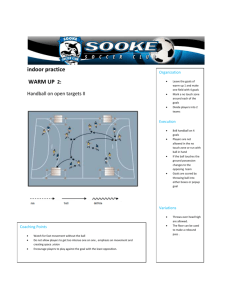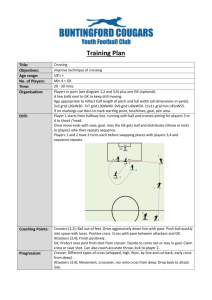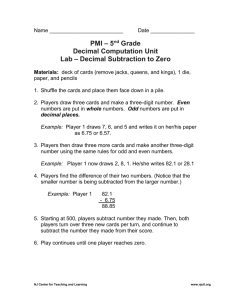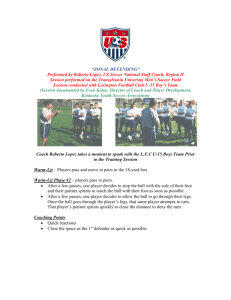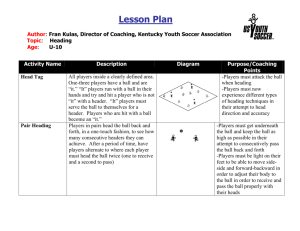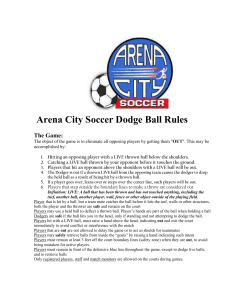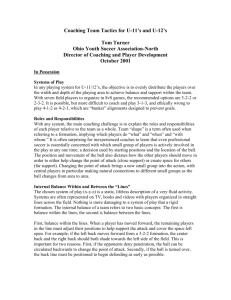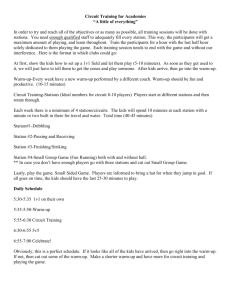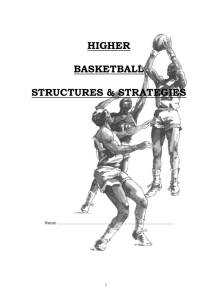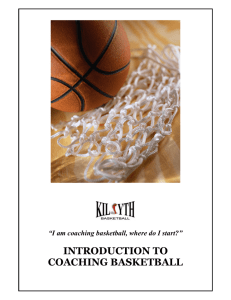Zone defence
advertisement
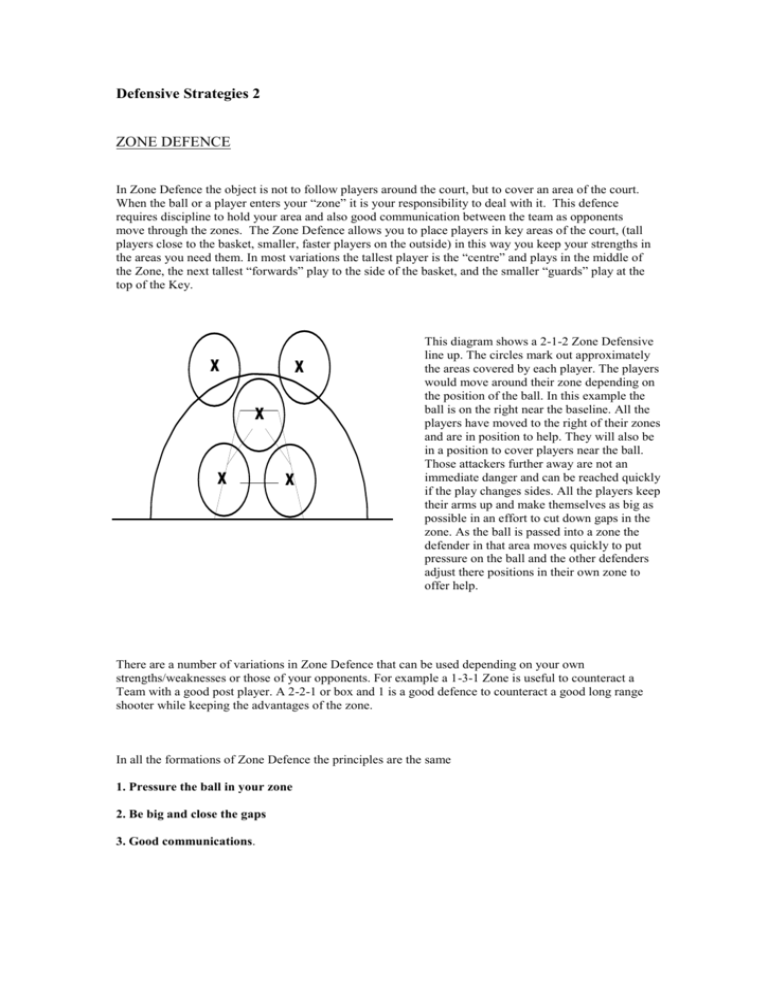
Defensive Strategies 2 ZONE DEFENCE In Zone Defence the object is not to follow players around the court, but to cover an area of the court. When the ball or a player enters your “zone” it is your responsibility to deal with it. This defence requires discipline to hold your area and also good communication between the team as opponents move through the zones. The Zone Defence allows you to place players in key areas of the court, (tall players close to the basket, smaller, faster players on the outside) in this way you keep your strengths in the areas you need them. In most variations the tallest player is the “centre” and plays in the middle of the Zone, the next tallest “forwards” play to the side of the basket, and the smaller “guards” play at the top of the Key. X X X X X This diagram shows a 2-1-2 Zone Defensive line up. The circles mark out approximately the areas covered by each player. The players would move around their zone depending on the position of the ball. In this example the ball is on the right near the baseline. All the players have moved to the right of their zones and are in position to help. They will also be in a position to cover players near the ball. Those attackers further away are not an immediate danger and can be reached quickly if the play changes sides. All the players keep their arms up and make themselves as big as possible in an effort to cut down gaps in the zone. As the ball is passed into a zone the defender in that area moves quickly to put pressure on the ball and the other defenders adjust there positions in their own zone to offer help. There are a number of variations in Zone Defence that can be used depending on your own strengths/weaknesses or those of your opponents. For example a 1-3-1 Zone is useful to counteract a Team with a good post player. A 2-2-1 or box and 1 is a good defence to counteract a good long range shooter while keeping the advantages of the zone. In all the formations of Zone Defence the principles are the same 1. Pressure the ball in your zone 2. Be big and close the gaps 3. Good communications.
